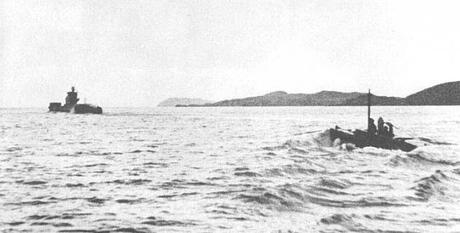WWII Events Today, September 22
Sep 22, 1940 Japan was formally granted air bases and the rights to maintain troops in French Indochina under terms of a treaty signed in Hanoi. The governor general of Indochina, General Georges Catroux sought Allied air to fight the Japanese, but Britain (and the United States) said it was not possible to consider military action in Asia.
Sep 22, 1940 Uruguay arrested eight Nazi leaders on charges of conspiring against the state.
Sep 22, 1941 Britain told Finland to conclude a peace treaty with Russia or risk being regarded as a belligerent.
Sep 22, 1941 German troops cut off Leningrad from the rest of the Soviet Union by reaching the southern shore of Lake Ladoga.
Sep 22, 1942 Plans were approved for shipping US war supplies to the Russians through Iran.
Sep 22, 1943 Two British X-craft midget submarines (out of the six which started the mission) penetrated Altenfjord in Norway and attached eight tons of explosives under the German battleship Tirpitz, causing crippling damage. Structural repairs would have to be completed in Germany if Tirpitz could ever operate in open sea again, and Hitler and Donitz decided to keep it in Norway as a floating battery.

British X-5 Midget Submarine on 11 Sept 1943. It was lost during the raid on Tirpitz 22 Sept 1943.
Sep 22, 1943 Australian forces made an amphibious landing six miles north of Finschhafen in New Guinea.
Sep 22, 1943 Poltava fell to the Russians. Red Army forces established bridgeheads on the west bank of the Dnieper River.
Sep 22, 1944 Market Garden: German tanks cut off road between Veghel and Grave, preventing an Allied attack on the bridge near Arnhem.
Sep 22, 1944 USS Yukon (AF-9) was hit on her starboard side by a torpedo fired by German submarine U-979, about 43 miles west of Reykjavik, Iceland. Surviving the attack, she steamed for two hours at three knots until her SOS was responded to by tugs from Reykjavik. In 1946, Yukon was decommissioned.
Sep 22, 1945 General George S. Patton told reporters that he did not see the need for “this denazification thing.” He compared the controversy over Nazism to a “Democrat and Republican election fight.” The comments led Supreme Commander Eisenhower removing him as U.S. commander in Bavaria.
